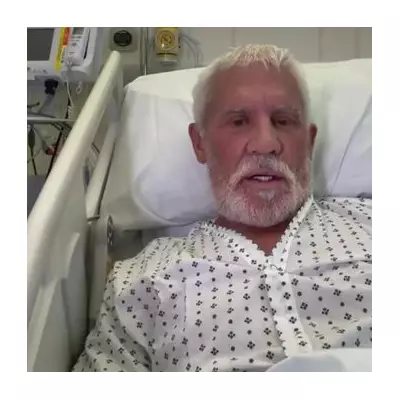
In a startlingly candid revelation, Strictly Come Dancing's head judge Shirley Ballas has laid bare the depths of her private anguish, confessing she reached a point where she felt 'better off dead' amidst a perfect storm of menopause, depression, and alcohol dependency.
The dance legend, 63, detailed her harrowing experience in an exclusive interview with The Daily Mail's Podcast, describing a period of profound despair that left her struggling to find a reason to carry on.
The 'Black Cloud' of Menopause and Heartbreak
Ballas pinpointed the onset of menopause, coupled with the intense heartbreak of her split from actor Danny Taylor, as the catalyst for her downward spiral. She described a overwhelming 'black cloud' that descended, making even the simplest daily tasks feel insurmountable.
'I didn't want to get out of bed. I didn't want to do my hair and make-up. I didn't want to do anything. I just felt like I was better off dead,' she confessed, highlighting the severity of her mental state.
Wine as a Crutch and a Toxic Cycle
To cope with the emotional turmoil and physical symptoms, Ballas turned to alcohol. She admitted to drinking a bottle of wine each night, a habit that quickly morphed from a coping mechanism into a serious problem that only deepened her depression.
This period was further complicated by the resurfacing of her ex-husband, Corky Ballas. His presence, she revealed, was toxic and detrimental to her recovery, pulling her back into old patterns that exacerbated her fragile state.
A Mother's Love: The Lifeline That Pulled Her Through
Throughout her darkest hours, Ballas's salvation came in the form of her son, Mark, and his wife, BC. Their unwavering support and the pure joy brought by her grandson became her anchor.
'My son would FaceTime me with the baby. That was my saving grace,' she shared, her voice undoubtedly filled with emotion. Their intervention was the critical lifeline that convinced her to seek professional help and begin the journey back to herself.
Today, Shirley Ballas stands as a beacon of resilience. Her decision to speak out is a powerful attempt to destigmatise the conversation around menopause and mental health, offering hope and solidarity to the countless women who may be silently suffering similar battles.





